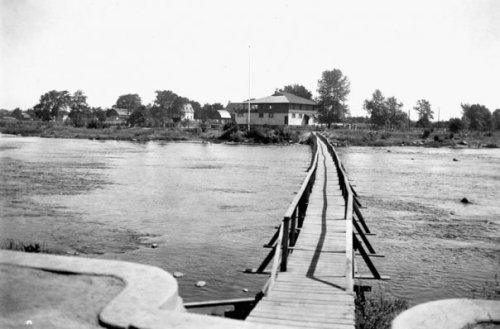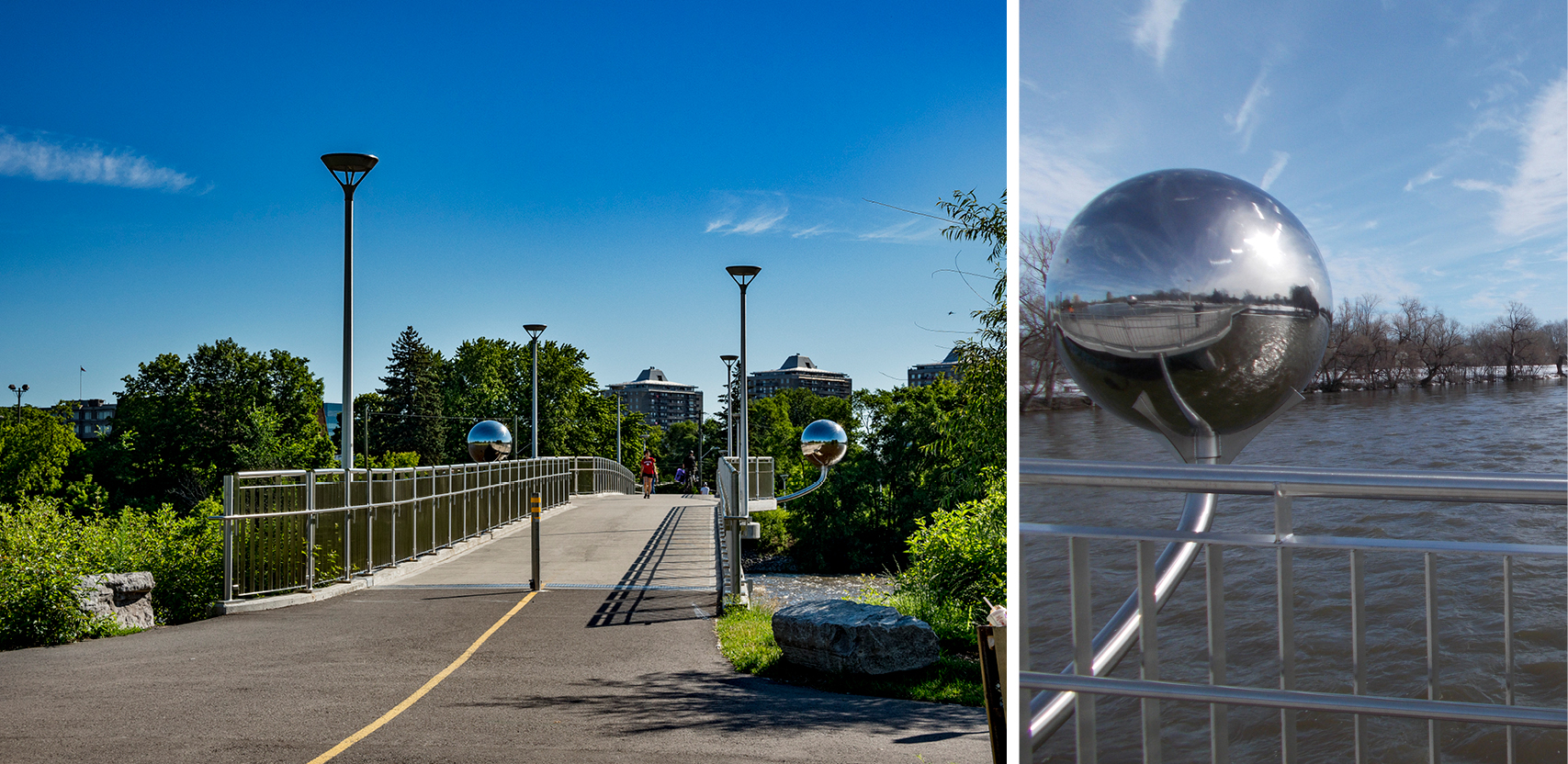Location: Ottawa, Ontario
Date of Completion: 2015
Architect: Stantec Architecture Ltd.
Nominated by: Lucille Collard, MPP (Ottawa—Vanier)
With a name meaning “to trade” in Algonquin, Adàwe Crossing provides a critical missing link in Ottawa’s pedestrian and cycling transportation network, fulfilling a long-held promise to reconnect two historically linked communities and supporting a more active and sustainable future.
A Critical Transportation Link
Stretching 125 metres over the Rideau River, Ottawa’s Adàwe Crossing is a new pedestrian and cycling bridge connecting the Vanier and Overbrook communities to the east with Sandy Hill, the University of Ottawa, and Ottawa’s downtown core to the west. These two communities had historically been connected since at least 1928 with a seasonal wooden bridge that was washed away by a torrential downpour in 1952. Since then, plans for a new bridge had been identified in numerous reports, but none of them had translated into action.
 Early wooden footbridge to Rideau Tennis Club, 1925
Early wooden footbridge to Rideau Tennis Club, 1925
The bridge has been a great success since day one, far surpassing use expectations and proving that durable, reliable, and safe active transportation infrastructure can be a catalyst for change in commuter behaviour. In July 2017, two years after its opening, 117,659 people crossed the bridge in a single month—60,758 of them on bicycles and 56,901 on foot. Adàwe Crossing now serves as a major commuter route for thousands of pedestrians and cyclists making their way to and from downtown and has been critical in showing that a more sustainable commuting future is possible.

Left: approach to Adàwe Crossing. Photo: Courtesy of Stantec Architecture Ltd. Right: close up of artwork Photo: Acadie77, Wikicommons.
Integrating Art and Infrastructure
A highlight of Adàwe Crossing is its meaningful integration of public art. Halfway through the crossing, suspended at eye level above the water, are two 1.5 metre diameter reflective stainless steel spheres that form “A View from Two Sides.” This public art piece, conceived by local transdisciplinary artist Kenneth Emig, presents the observer with an ever-changing panoramic view that includes the sky, river, shores, bridge, pedestrians, and cyclists. Despite being completely static, the piece is kinetic in nature as all the elements it reflects are in constant motion and change.
In 2017, the piece was awarded a City of Ottawa Urban Design Award of Merit in the Urban Elements category. The jury stated: “The project offers a focal point along the new pedestrian route that emphasizes an interaction of space and allows us to become part of the view. It is a simple idea that is bigger than what it is. A clever play on perspective.”
This post forms part of our World Architecture Day Queen’s Park Picks 2022 series in which the OAA asked Ontario’s Members of Provincial Parliament (MPPs) to nominate a prominent building, past or present, in their riding for a chance to learn more about it. Check out the rest of the series to learn more about great buildings across the province!
Additional Resources
Interested in learning more about Adàwe Crossing and A View from Two Sides? Check out these additional resources: